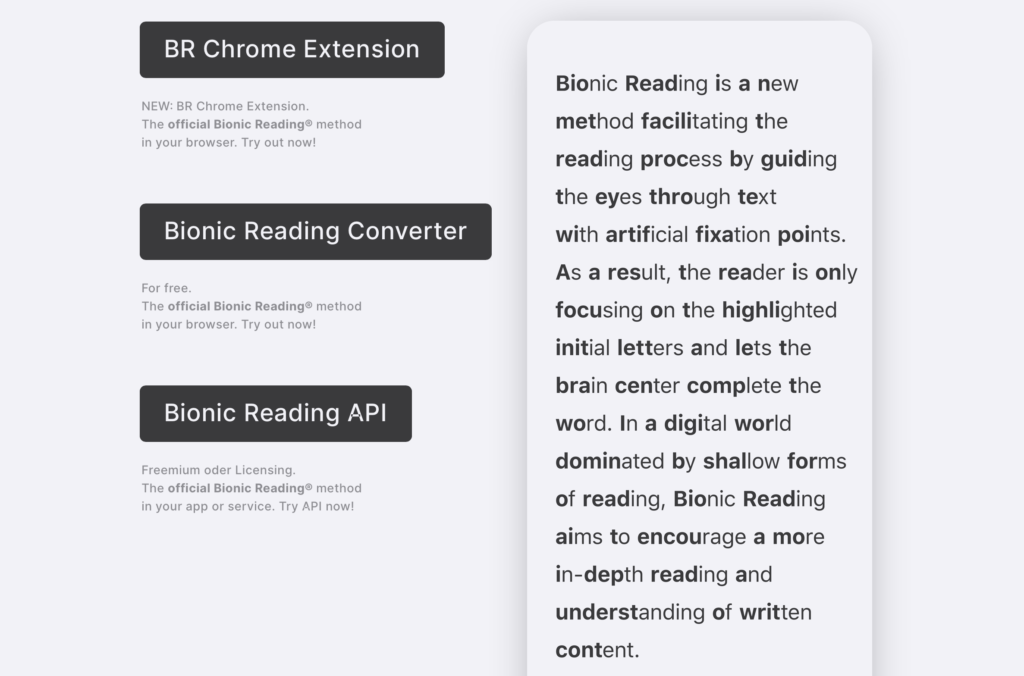Does the bionic reading app really help with reading?
Is there an effective speed reading app out there?
We have not yet found an app that we can recommend to help speed up reading. The most important thing is getting what you need from a text – and understanding it. The apps we’ve found so far are mechanistic and work with words rather than meaning and comprehension. We’ve discussed speed reading apps before and fonts that might help you read faster. Hopefully, in the future, AI will be able to analyse text and help you focus on meaningful keywords and keyphrases that could potentially help with faster and more effective reading, with increased comprehension.
Does the bionic reading app work?
Our recent find app for reading Bionic Reading (developed by Swiss typographic designer Renato Casutt) helps you focus on the beginnings of words with the aim of speeding up you’re reading. It’s true that as soon as you’ve understood the word you can move on quickly. With novels, for example, I usually recognise the characters by the first letter of their name, so it’s really annoying when two names start with the same letter, or worse when two characters have the same name (although that happens more in real life than in fiction). But as soon as you’ve understood where a phrase or sentence is going, move on. More importantly, when you’ve understood where a paragraph or page is heading, move on too.
If you really don’t know how to focus on the first letters of a word, then sign up for the free trial of this app or try the bionic reading text convertor. The app has some limited settings that allow for some options such as increasing and decreasing the number of the first letters, fonts and layout settings. The option to decrease the number of bolded letters is useful because you can eliminate less necessary grammar words such as ‘a’. And as soon as you’ve got the benefit of that skill, move on to many other small skills which can help you.
Research on the bionic reading app
According to a Guardian article, “Casutt says he has overseen a study involving 12 readers who were asked to read a text in bionic and ordinary text like what you’re reading now. Casutt concedes that the results from his tests are not clear but claims most subjects reported that bionic had a positive effect on reading (whereas a minority reported feeling “disturbed”).
Limitations of the bionic reading app
The app highlights/bolds the letters of all words, not just the meaningful ones which makes the app not that useful from the speed reading mindset. Without using this app, start focusing on the words that carry most of the meaning (nouns and verbs) and ignoring most of the smaller grammatical words, such as ‘a, the, is’, etc (while still being aware of words such as ’not’ which completely change the meaning).
For example, “The man was standing on the corner of the street.” is how your mind and eyes need to speed read text focusing on important keywords, nouns and verbs such as ‘man’, ‘standing’, ‘corner’, ‘street’ in this sentence. The bionic reading app would make you focus like this: The man was standing on the corner of the street.” The little grammar words (the, was, on the, of, the), which your eyes will notice, are not essential to the understanding of this sentence ie “The man was standing on the corner of the street.” because your mind will get the meaning from just: man – standing – corner – street.

